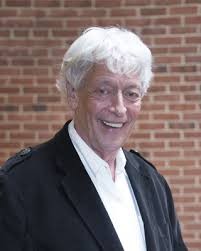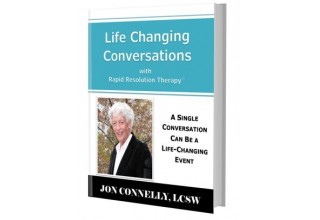
BOCA RATON, Fla. - October 22, 2019 - (Newswire.com)
For anyone who has experienced traumatic events in their lives, they know it can be hard to move on from emotional pain. People who have experienced physical and sexual assault aren’t the only folks who struggle with emotional pain after a traumatizing event. The emotional pain someone experiences can happen after anything that makes the person feel devastated and helpless.
The emotional pain that one feels is often downplayed. In today’s world, most of what goes on could be considered traumatic, yet someone rarely ties those things to the symptoms they have. Often symptoms like anxiety, depression, and fatigue are written off and not associated with what an individual has gone through in their past. While sometimes the symptoms present themselves for other reasons, most often the trauma an individual has gone through can be directly tied to many of their mental and physical symptoms.
Contact Jon Connelly's office at 1-800-587-2623 or email info@rapidresolutiontherapy.com.
Helping trauma survivors heal their emotional pain
The first step for many people is to acknowledge their trauma and emotional pain. Over time, people have been conditioned to suppress their emotions and be shameful of feeling anything other than happy and healthy. That shame and suppression actually propels the impacts of the trauma and also help people firm up the patterns of behavior that are no longer serving them. Recognizing the impacts of emotional pain in their lives has proven to be the first step to helping trauma survivors heal their emotional pain.
There are many treatment modalities that claim to help those who have experienced trauma but which one works best isn’t known. Many professionals believe that each individual requires a different type of treatment and some have been convinced that pharmacological choices are an effective way to treat. While schools of thought on which treatments help trauma survivors the most differ, some individuals do see improvements with available treatments. Sadly, just as many see no improvement or symptoms that worsen using the models most professionals employ today.
What help for trauma survivors is available?
Unfortunately, the number of mental health professionals that would qualify as trauma-informed is very small. Often a therapist is ill-equipped to help a trauma sufferer. The treatment models that are available are often too complex and not validating enough for trauma survivors to feel like they are worthy of help. In addition to feeling not worthy enough, many trauma survivors also fear therapists and psychologists because of what they know they will have to talk about.
There are therapy models out there that help people who have suffered from trauma. Talk therapy works for some while other therapists use treatments like EMDR to help their clients process things that happened to them. Some use cognitive behavioral therapy and exposures to help clients get over their fears after something traumatic occurs. Other forms of therapeutic approaches may include dialectical behavioral therapy, somatic experiencing and inner child work. Many of those approaches only force trauma survivors to relive what happened to them or shut down because telling someone doesn’t feel safe.
Is there a better way to help trauma survivors?
According to developments in neuroplasticity, there is a better way to help trauma survivors. The treatment models that are currently used happen once a week or twice a week at best. This isn’t enough reinforcement in the brain of the same new information to create fast and sustainable change in the thoughts and coping patterns in trauma survivors. Treatment models that are the most effective seem to be targeted at retraining the brain. This new research suggests that helping trauma survivors may be entirely about rewiring their brain to feel safe in circumstances that usually make them anxious or scared.
Go to https://rapidresolutiontherapy.com to Connect with Jon Connelly and His Staff.
https://rapidresolutiontherapy.com/issv Dr. Jon Connelly founded the Institute for Survivors of Sexual Violence (ISSV) to provide our therapeutic approach to those who have suffered sexual trauma.
Methods like Rapid Resolution Therapy, created by Jon Connelly, take advantage of how the brain works already. Using specific language and communication techniques, the brain can easily learn how to respond and react differently. While engaging in Rapid Resolution Therapy, individuals are able to change the way their mind works and can consciously shift their emotions. Understanding their feelings and how to work through them does help trauma survivors feel relief from their emotional pain. These brain-changing conversations take place quickly and in a specifically targeted way. With the intention of changing the neural pathways and thought patterns, the client often reports feeling better after just one session.
Rapid Resolution Therapy works to address and clear the ongoing effects of anxiety, panic disorder, insomnia, night-terrors, grief, heartbreak, betrayal, childhood abuse, sexual violence, shame, guilt, rage, anger, jealousy, and combat or first responder PTSD.
Does Rapid Resolution Therapy help trauma survivors?
The new approach to helping trauma survivors is based in the science behind how trauma impacts the brain and its development. Jon Connelly uses a proven method that he created to help trauma survivors have breakthrough conversations with others and themselves. These conversations lead to a better understanding of their coping patterns, how to challenge their own thoughts and how to find compassion for themselves. It’s this understanding of trauma and themselves that allows them to feel the instant relief from their anxiety and depression.
https://rapidresolutiontherapy.com/what-professionals-are-saying What are Professionals Saying about Rapid Resolution Therapy?
Jon Connelly created Rapid Resolution Therapy after years of trying to help trauma survivors. Throughout his career, he saws the links to trauma and the symptoms individuals were experiencing. After seeing traditional therapy fail to address their issues, Connelly chose to find a way to help trauma survivors overcome their past and step into the life they were meant to live. Releasing the emotions and guilt that come with being traumatized is an important part of the process that Rapid Resolution Therapy teaches.
To fully understand how to help trauma survivors, one must listen to them. Connelly’s approach is based on science and individual feedback. He observed trauma survivors and what they needed to truly feel safe and free from the emotional pain they had been holding onto. Over the years, Rapid Resolution Therapy became the method he worked with to help trauma survivors. Most of those trauma survivors have felt immediate and lasting relief from what they experienced after just one session. Jon Connelly and Rapid Resolution Therapy is available for trauma survivors across the United States. For more information, trauma survivors can book an appointment online at https://rapidresolutiontherapy.com/book-a-session-with-dr-connelly or via telephone at 800-587-2623 to schedule their first session.
Related Images


Press Release Service by Newswire.com
Original Source: Jon Connelly Discusses How Trauma Survivors Can Find Relief From Emotional Pain